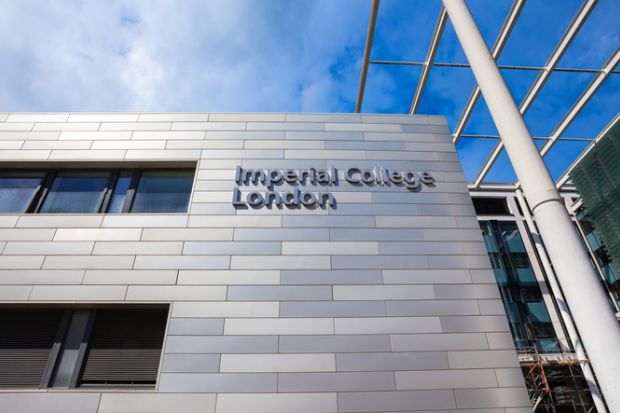Imperial College London’s president has issued an apology and has faced a disciplinary hearing after an independent investigation concluded that she had bullied someone.
Alice Gast and Muir Sanderson, the university’s chief financial officer, have also been offered coaching, following an investigation into allegations of bullying and a dysfunctional culture, which came to light last week.
Jane McNeill QC, who conducted the investigation, found that Professor Gast had bullied one person, while Mr Sanderson was found to have bullied two colleagues between late February and mid-March.
The QC recommended that Imperial’s chair of council John Allan hold disciplinary hearings against the pair, which have now concluded, and that he should oversee reviews of the institution’s bullying policy and governance structure.
Imperial said it was in the process of implementing recommendations that annual appraisals for the president’s direct reports are conducted “with improved record-keeping and oversight from HR” and for the introduction of a 360-degree appraisal system – where feedback is kept anonymous – for senior leaders.
It will also implement further training on processes around bullying and harassment and on the use of settlement agreements for senior managers.
Specific support has been offered to the complainants and apologies made, as a result of the findings of the report, the university said.
Professor Gast said she was “sorry that, at times, I made some senior staff feel unappreciated and left out. I am very sorry that I bullied someone.”
“I have offered full apologies to colleagues who have been personally affected. Making difficult decisions, often under time pressure, is expected of a leader and I have fallen short. I have learned a lot from this experience and have focused on using it as a catalyst for positive change for me and my leadership team,” she said.
Mr Sanderson added that he would “continue to be immensely sorry that I bullied two colleagues”.
“My actions don’t reflect my values and most certainly do not reflect the college’s. The bullying was during a three-week period earlier this year when I was under significant pressure. However, that is no excuse. It is when things are most pressurised, that we need to support each other most,” he said.
Both said they were “fully committed” to implementing the recommendations from the investigation.
In a statement, Imperial said that the leadership team “will continue to consult widely as they deliver on these changes, and will update the community on progress in the spring”.
Register to continue
Why register?
- Registration is free and only takes a moment
- Once registered, you can read 3 articles a month
- Sign up for our newsletter
Subscribe
Or subscribe for unlimited access to:
- Unlimited access to news, views, insights & reviews
- Digital editions
- Digital access to THE’s university and college rankings analysis
Already registered or a current subscriber?







